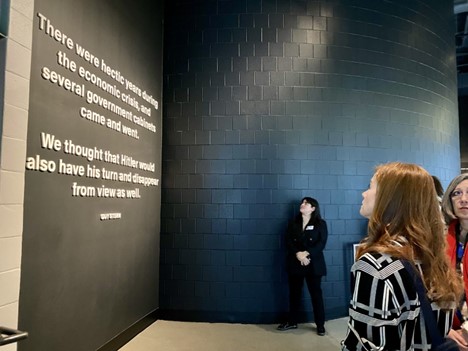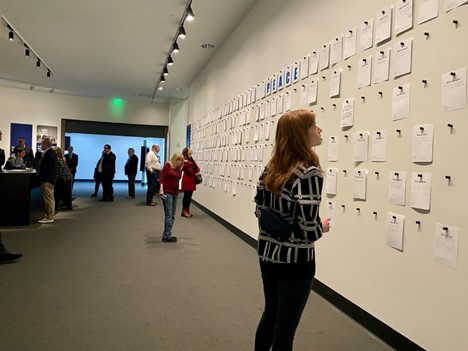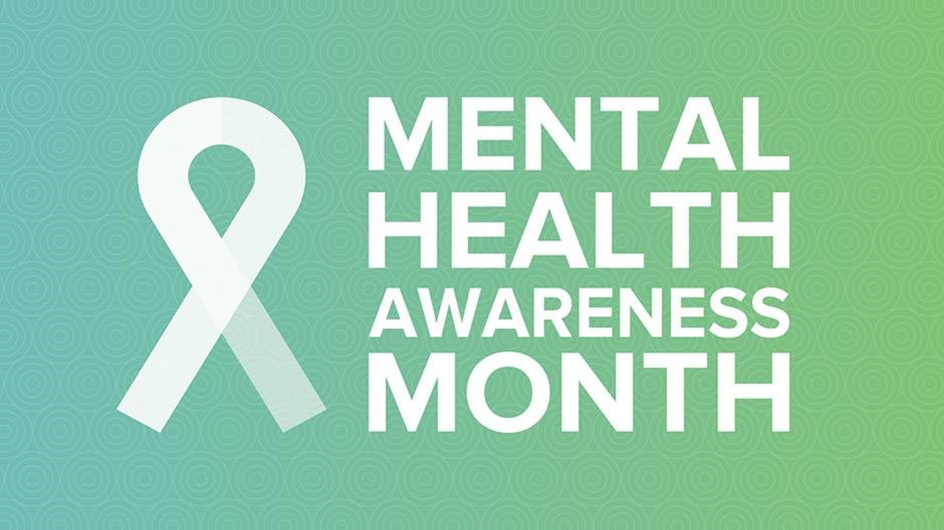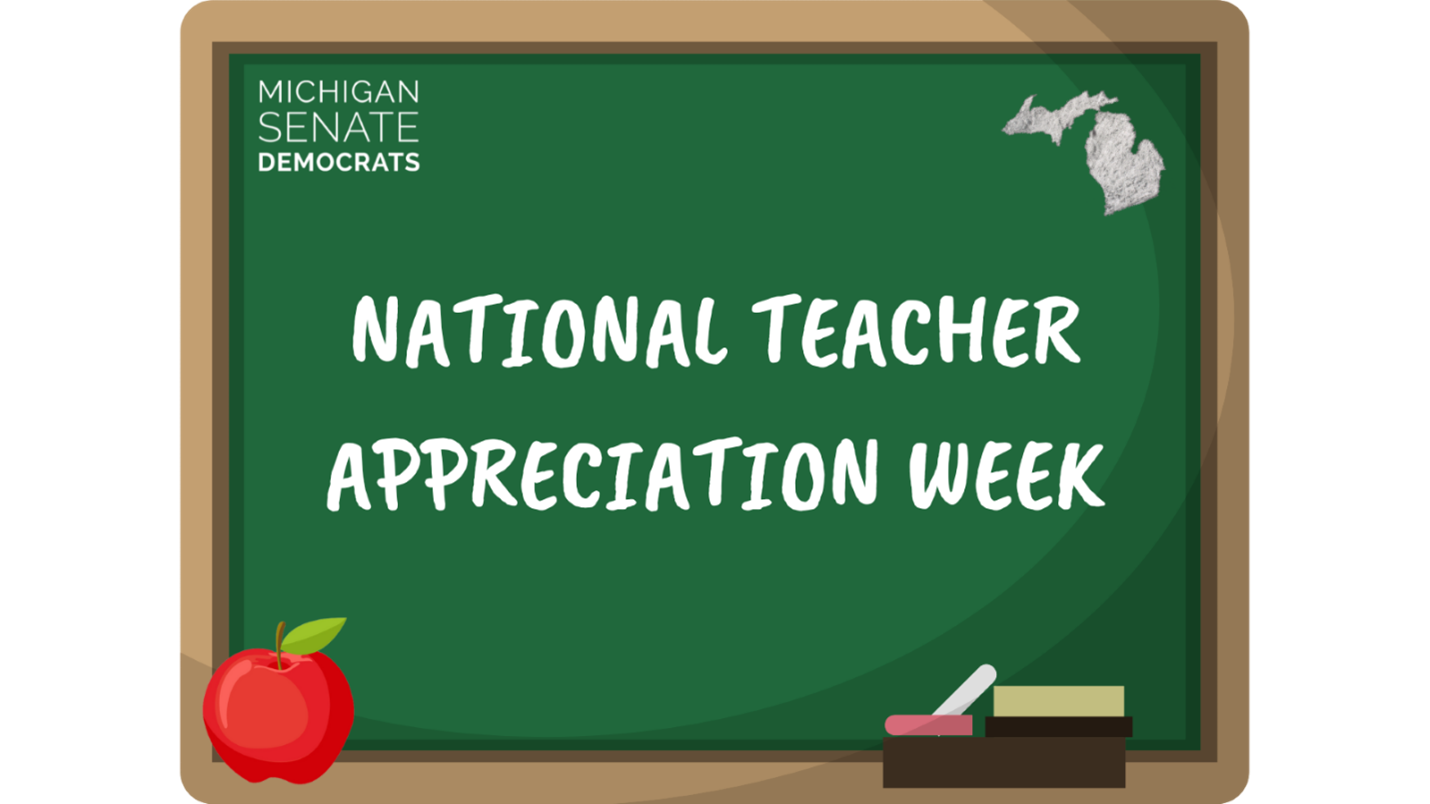
Dear Neighbor,
In the month of May, I’m energized to continue delivering results for our community and look forward to all we can accomplish together.
Our team is keeping busy crafting a balanced budget, making progress on legislative priorities, and connecting with constituents.
If you or someone you know would like to provide feedback about what’s happening in Lansing or needs assistance, feel free to contact my office. You can email us at SenMMcMorrow@senate.michigan.gov or call (517) 373-2523.
Sincerely,

Featured in This Newsletter
- Legislative Updates
- News You Can Use
- Good News from the District
Legislative Updates
Senate Economic and Community Development Committee Holds First Committee Hearing of 2024
Besides being a member of the Senate Appropriations committee (among others), I am the Majority Chair of the Senate Committee on Economic and Community Development, which held its latest hearing of 2024 on May 2.
The committee voted both bipartisan in nature and unanimously in favor of Senator Wojno’s Senate Bills 536–537, which were heard for testimony earlier in the year. The bills, if enacted, would make two changes affecting what properties may be eligible for an industrial facilities certificate in Michigan:
1) Allows a new building that is for warehousing or distribution to be eligible. Senate Bill 536 would expand eligibility to manufacturing, warehousing or distribution facilities.
2) The bills expand the definition of “qualified commercial activity” beyond what is in current law: locations in a county that either borders another state or Canada. This expansion removes the current limitations on where qualified commercial activity must be located to be eligible.
The bills now go to the Senate floor for a vote, before moving to the House.
The Chief Growth Officer for Michigan, Hilary Doe of the Michigan Economic Development Corporation (MEDC), joined the committee to finish presenting on the Growing Michigan Together Council’s December population growth report, which was commissioned by Governor Whitmer to better understand and address Michigan’s dire population predicament.
Michigan is currently ranked 49th out of 50 U.S. states when it comes to population growth annually; population declines are proven to threaten business attraction, erode local tax bases, and even limit political influence and this report reflects just how. Whether it be a need for more young people to move to Michigan or a need for higher wages, more diverse industries offering job opportunities, public transportation, affordable housing, or even affordable childcare access, this report and Doe’s testimony made it clear that there’s both much work to be done here at home and many possible routes we can take to get back on track.
The key solutions that were presented include:
- Establish Michigan as the Innovation Hub of the Midwest and America’s Scale-up State by developing an economic growth plan and target efforts to attract and retain young talent.
- Build a lifelong learning system focused on future-ready skills and competencies by committing to the Michigan Education Guarantee.
- Reimagine the job of teaching and the structure of the school day, enabling educators to innovate so students can learn for life
- Make postsecondary education attainment more accessible and affordable by providing all students with access to up to two years of free postsecondary education and creating a seamless lifelong learning system.
- Align governance and accountability across an equitably and efficiently funded lifelong learning system while clarifying roles, eliminating inefficiencies and bolstering capacity.
Create thriving, resilient communities that are magnets for young talent by:
- Developing robust and reliable regional public transit systems across the state.
- Developing and revitalizing housing stock to meet Michigan’s housing demands.
- Future proof our infrastructure to ensure Michigan has reliable and climate-resilient infrastructure that serves as an asset to the economy.
Working to Deliver a Fiscally Responsible State Budget
Last year marked a significant milestone for Michigan Democrats as we capitalized on their first trifecta in 40 years to spearhead a transformative budget — directing vital resources into historically neglected sectors like infrastructure, education, and local communities. This comprehensive budget, encompassing various offices, departments, initiatives, projects and programs, follows an annual funding cycle, necessitating the State Legislature to craft a new budget each year.
Crafting this state budget is a collaborative effort involving negotiations between both legislative branches and the governor, resulting in a new state budget being signed into law each year to distribute funding to residents, schools, communities, businesses, local governments and more.
Currently, we’re in the thick of our annual budget process with subcommittees reporting out proposals for the full Appropriations Committee’s consideration. As we work to deliver a budget by the end of June, I encourage you to learn more about the process and the investments we’re looking to make to support communities across Michigan — read more here. I will have more updates to share on the budget process soon.
Senate Introduces Bills to Codify Capitol Weapons Ban
Sen. Dayna Polehanki (D-Livonia) and Sen. Rosemary Bayer (D-Keego Harbor) introduced SB 857 and SB 858, respectively, on Thursday, May 2, which would codify a weapons ban enacted by the Michigan State Capitol Commision in 2023 and expand it to include the state Senate and House office buildings. This legislation is vital to protecting all visitors to our State Capitol, especially children and school groups, and making sure people aren’t intimidated out of participating in democracy and attending committee hearings and visiting their lawmakers.
The legislation also would maintain an exemption allowing sitting members of the Legislature to carry concealed firearms. The bills were referred to the Senate Civil Rights, Judiciary and Public Safety Committee.
Senate Democrats Recognize Holocaust Remembrance Day




Senator McMorrow at the Zekelman Holocaust Memorial Center
The Senate passed Senate Resolution 116 to commemorate May 6, 2024, as Holocaust Remembrance Day in Michigan. The resolution was sponsored by Sen. Jeremy Moss (D-Southfield).
I had the opportunity to visit the newly renovated Zekelman Holocaust Memorial Center earlier this year. The renovation emphasizes stories of Michigan survivors told with thoughtful testimonials as well as staff and docent personal connections. It is crucial to ensure that we are educated on this horrific genocide in order to combat hatred and Holocaust denialism.
“Whoever listens to a witness, becomes a witness.” – Elie Wiesel
Senate Democrats Fight to Expand Access to Mental Health Care
Throughout our state, communities are grappling with the issue of having too little access to mental health support — a crisis particularly affecting young Michiganders and our veterans. That’s why Senate Democrats took action and made critical investments in the 2024 State Budget to address this gap in coverage and ensure all Michigan residents who need assistance can access it. A few highlights of the investments we have made thus far in mental health care include:
- $280 million for certified community behavioral health clinics to expand access to care.
- $328 million in the education budget to address the mental health and safety concerns of students and teachers.
- $1.2 million for suicide prevention programs to help military veterans and their families.
As we recognize May as Mental Health Awareness Month and as we continue to craft our budget for 2025, my colleagues and I remain committed to ensuring every person in our state can access essential services and programs to improve their mental health and overall well-being. Together, we can break down barriers to care and create a healthier, more resilient Michigan.
News You Can Use
EPA Awards Michigan With Historic Investment in Solar Energy for Low-Income Residents
Local and state leaders from the Michigan Department of Environment, Great Lakes, and Energy (EGLE), Michigan Infrastructure Office (MIO), City of Detroit, community organizations and state legislators are celebrating a historic $156 million investment in solar energy by the U.S. Environmental Protection Agency (EPA) to the State of Michigan to accelerate the deployment of community and rooftop solar for thousands of low-income households across the state.
The initiative, known as the Michigan Solar for All (MISFA) program, aims to reduce utility costs for families, foster job creation, and strengthen Michigan’s advanced clean energy sector – all while moving the state toward its MI Healthy Climate Plan goals. The program is expected to make a substantial impact by providing low-income households across Michigan with access to affordable renewable energy and by enabling home repairs, reducing their energy bills by up to 20%.
To stay informed with MISFA updates, please sign up via the MI Solar for All Interest Form.
Michigan Department of Education and Library of Michigan Seek Nominations for Next Michigan Poet Laureate
The Michigan Department of Education (MDE) and the Library of Michigan are seeking public nominations for the next Michigan Poet Laureate.
The poet laureate will meet with students, teachers, and residents across the state in schools and libraries to promote poetry, spoken word, and literary arts.
Nominations can be submitted through the online form found at Michigan.gov/PoetLaureate. To be considered, nominees must:
- Be 18 years or older with current primary residency in Michigan.
- Have a robust and sustained body of work.
- Be an experienced and skilled poet within the literary and/or performance formats.
- Have the ability to work independently and have good rapport with various audiences.
- Be skilled at communicating in public and with the media.
- Have strong social media and promotional skills.
- Have experience working with audiences of all ages.
Nominees must submit a list or provide links to three work samples and a statement of why they should be considered for the position of Michigan Poet Laureate. Self-nominations are also accepted. The selected nominee will serve a two-year term starting in 2025. All nominations must be received by May 20, 2024. A selection committee of MDE staff, Michigan poets, and literacy experts will review all nominated poets. The committee will provide a list of finalists to Michigan’s state librarian and superintendent of public instruction, who will decide the final candidate.
Michigan’s first state poet laureate was Edgar A. Guest, who was bestowed the title of poet laureate by the Michigan Legislature in 1952. Guest held the position until his death in 1959.
After several decades with no appointed poet laureate, the Library of Michigan and Michigan Department of Education selected award-winning poet Nandi Comer as the Michigan poet laureate in 2023. Comer’s term concludes at the end of 2024.
Find a list of upcoming poet laureate events at Michigan.gov/PoetLaureate.
Send questions about the nomination and selection process to PoetLaureate@Michigan.gov.
Essential Resources for Mental Health Awareness Month

With one in five Americans and nearly 1.5 million Michiganders experiencing mental health issues each year, it’s important to remind ourselves to care for our mental and emotional health. If you find yourself emotionally struggling or experiencing a mental health crisis, please be sure to utilize the following resources and remember — you matter!
Crisis Lines
- 988 Suicide and Crisis Lifeline: 988 is a 24/7 toll-free nationwide hotline that provides confidential and compassionate care for anyone struggling with behavioral health issues, emotional distress or substance use crisis. If you or someone you know is struggling or in crisis, help is available. Call or text 988 or visit their Lifeline Chat to connect with a trained crisis counselor.
- Veterans Crisis Line: The Veterans Crisis line provides veterans and their family members with 24/7, confidential support. To connect, call 1-800-273-8255 and press 1 or text 838-255. You do not have to be enrolled in VA benefits or health care to call.
- Trevor Lifeline: The Trevor Project has trained counselors who understand the challenges young people in the LGBTQ community face and are available for support 24/7. Call 1-866-488-7386, text 678-678, or click here to speak with a crisis counselor.
Locating Treatment Services
- Michigan 211: If you need assistance locating long-term mental health resources, talking through a problem, or exploring mental health treatment options, call 211 or visit mi211.org to speak with a live person who can help. All conversations are confidential, can be made anonymously, and are available in 180 languages upon request.
- Substance Abuse and Mental Health Services Administration: Visit FindTreatment.gov, a confidential and anonymous resource, to locate treatment facilities for mental and substance use disorders near you.
- Michigan Community Mental Health Services Programs: CMHSPs provide a comprehensive range of services and supports to children, adolescents and adults with mental illnesses, developmental disabilities and substance use disorders in all 83 Michigan counties. Find your local program here.
Guidance on Creating Tick-Safe Zones Around Residential Properties
The Michigan Department of Agriculture & Rural Development (MDARD) is advising Michigan residents of the dangers of ticks and providing tips for preventing encounters. As warmer weather approaches, so does the increased risk of tick encounters, posing potential health threats to people and pets enjoying outdoor activities.
There are more than 20 known tick species in Michigan. Most often, they survive by feeding on wildlife. Several species of ticks are known to bite people and pets; and the insects may harbor dangerous bacteria, viruses, or parasites. Not all ticks carry diseases, but tick-related diseases (including Lyme disease) do occur in Michigan and can be serious or fatal if not properly diagnosed and treated.
Here are some simple techniques to help reduce tick populations around your home:
- Clear tall grasses and brush around homes and at the edge of lawns.
- Place a 3-foot-wide barrier of wood chips or gravel between lawns, wooded areas, patios, and play equipment. This will restrict tick migration into recreational areas.
- Maintain short grass in lawns and keep leaves raked.
- Stack wood neatly in a dry area to discourage rodents that ticks feed on.
- Keep playground equipment, decks, and patios away from yard edges and trees. If possible, place these items in a sunny location.
If you do choose to use pesticides, follow these safety tips:
- Always follow label directions and wear the personal protective equipment specified on the label.
- Store pesticides in their original containers with proper labels.
- Keep pesticides locked up and out of the reach of children and pets.
- Use the amount specified on the label. Using additional product will not be more effective and may harm you, your pets, and/or the environment.
- Wash clothes that have been in contact with pesticides separately.
- Wash hands with soap and water after using a pesticide, including insect repellents.
- Use the Environmental Protection Agency’s search tool to find a repellent product that is right for you.
If you are interested in hiring a pesticide applicator to manage pests for you, choose a firm licensed by MDARD. Licensed firms meet the necessary education and experience requirements and employ pesticide applicators who have passed MDARD’s proficiency examinations. Their training and experience will help prevent accidental pesticide misuse that could harm people, pets, livestock, and the environment.
For additional information about ticks, including how to identify and remove a tick, visit the MDHHS website. Learn more about pesticide safety at Michigan.gov/MDARD.
Help Prevent the Spread of Invasive Plant Pests This Spring
It’s finally spring in Michigan and that means Michiganders are thinking about what they want to plant in their garden this year. As gardening season gets underway, the Michigan Department of Agriculture and Rural Development (MDARD) is asking people to learn about the risks posed by invasive plant pests, diseases, and harmful weeds and what you can do to help prevent the introduction and spread of invasive species.
Here are a few simple ways you can help limit the spread of invasive species:
- Learn to spot invasive pests posing a threat to agriculture and the environment in your area. Report signs of invasive plant pests and diseases at Michigan.gov/Invasives.
- Purchase heat-treated firewood or buy wood where you burn it to avoid unintentionally spreading species that hide in untreated firewood.
- When traveling, be aware of pests residing in your destination to avoid returning with them in tow. For international travel, declare food, plants and other agricultural items to U.S. Customs and Border Protection to ensure these items are pest-free.
You can also check out MDARD’s Buggin’ Out video series for information about invasive species, beneficial insects, pest management and more.
Teacher Appreciation Week

May 5-11th is Teacher Appreciation Week. Thank you to all the teachers and education professionals for the work that you do. We can all name at least one teacher or educator that impacted our lives. Be sure to thank the educators in your life, not just this week, but every week!
Nurses Appreciation Day

On May 7, we celebrated National Nurses Day. Thank you to all the hardworking nurses who make a difference in patient’s lives every day! I see you and will continue to advocate for safe staffing rations, fair scheduling, and workplace safety to improve conditions in our healthcare system.
Happy Mother’s Day

Baby Mallory with mom, Kathy
This Sunday, May 12, we celebrate the strength, love, and sacrifice of the mothers and maternal figures who have touched our lives! And for anyone who is struggling on Mother’s Day, for any reason, I am thinking of you, too.
We’re Hiring!

My office is looking for a part-time Digital Communications Lead to join our team. Work is primarily remote with some travel in-district and to Lansing. Job description here. Come join our team!
Please submit cover letter and resume to ecollins@senate.michigan.gov by May 17.
Good News From the District
Baby Born in downtown Royal Oak!

Photo courtesy of Sean and Alyse Sparkman

Photo courtesy of Mayor Mike Fournier
Alyse Sparkman was feeling contractions and visited her doctor where she was told she was not in active labor. She and her husband Sean then decided to grab a bite to eat at Lily’s Seafood Grill and Brewery in Royal Oak. Just after their food arrived, Alyse’s water broke, and Sean ran to get the car to take her to the hospital. Within two minutes, their baby daughter was born! Luckily, dining next to the Sparkman’s were retired nurses, Patricia Worton and Kim Boustany, who were able to untangle the umbilical cord from around the baby’s neck and safely deliver her. Diners and staff erupted in cheers and applause. After two days in the hospital, they were both discharged and are doing well.
Baby Penelope now has a new middle name…Lily! What an amazing birth story. Congratulations to the Sparkman family and Happy Mother’s Day, Alyse!
